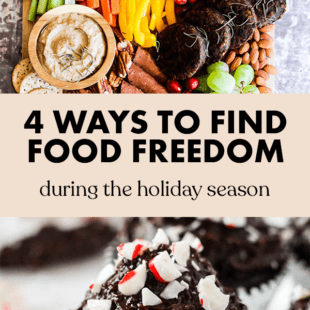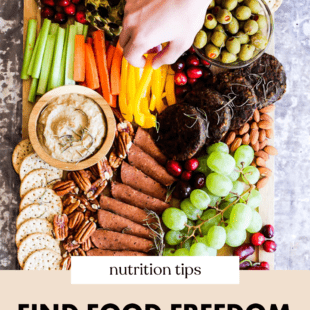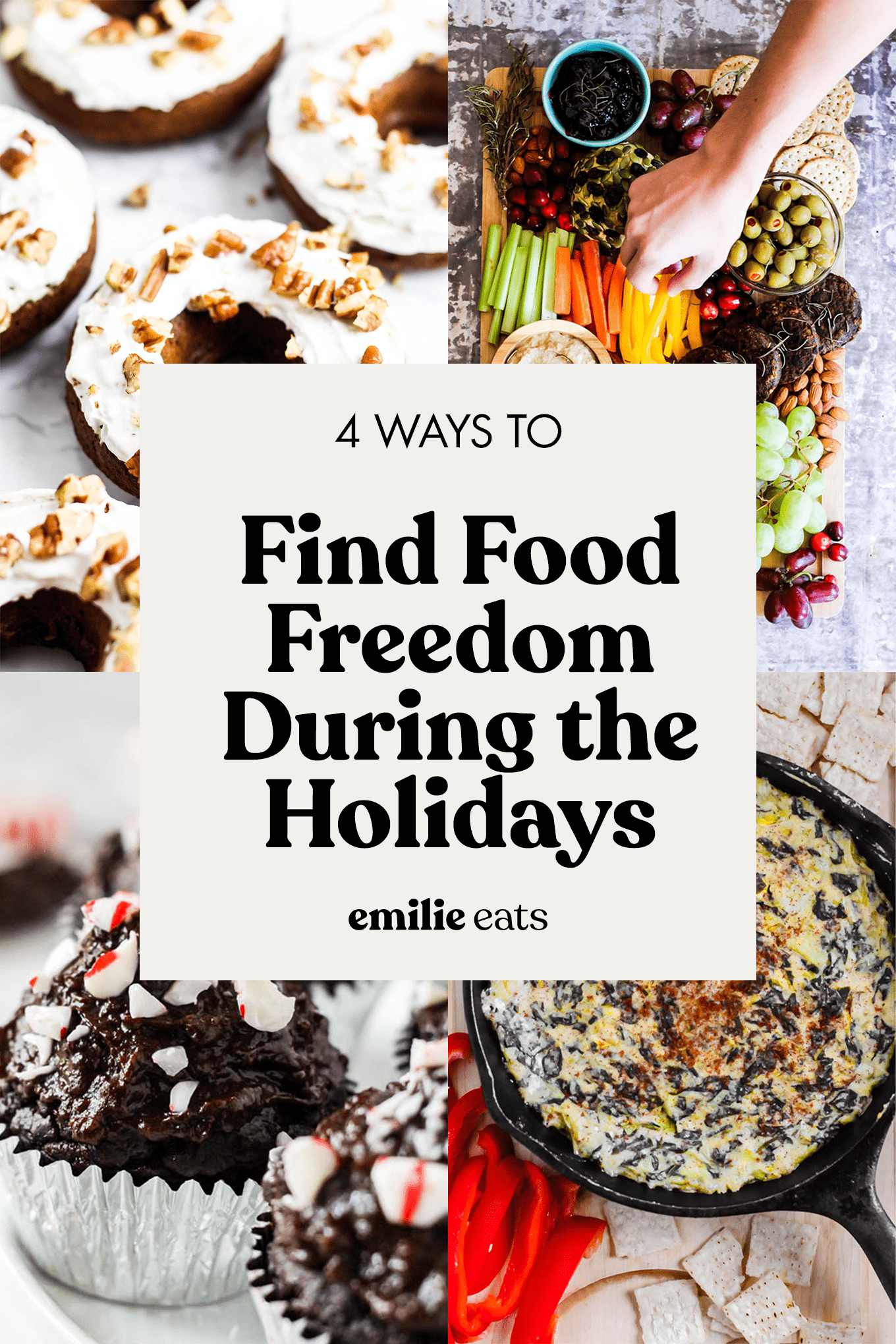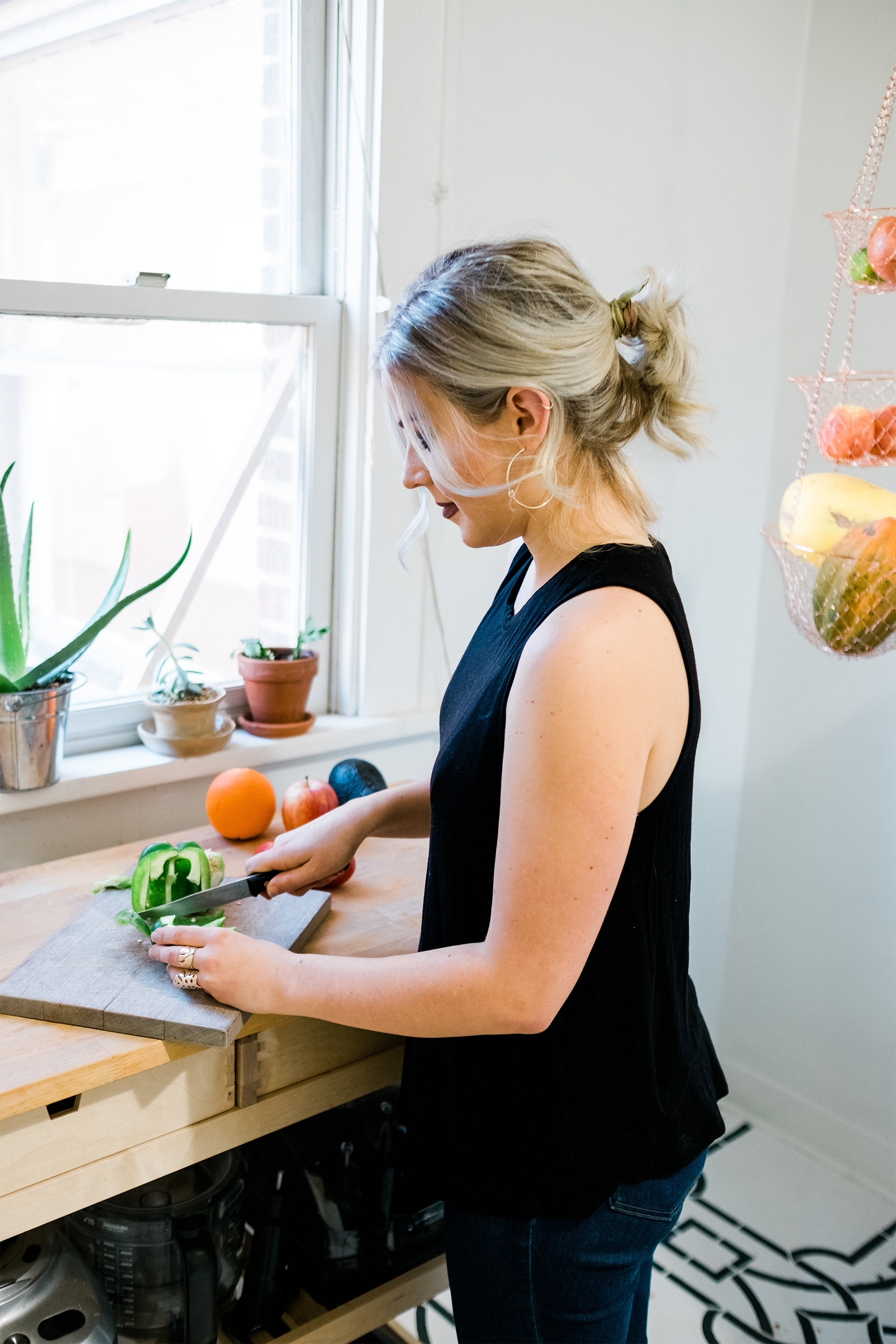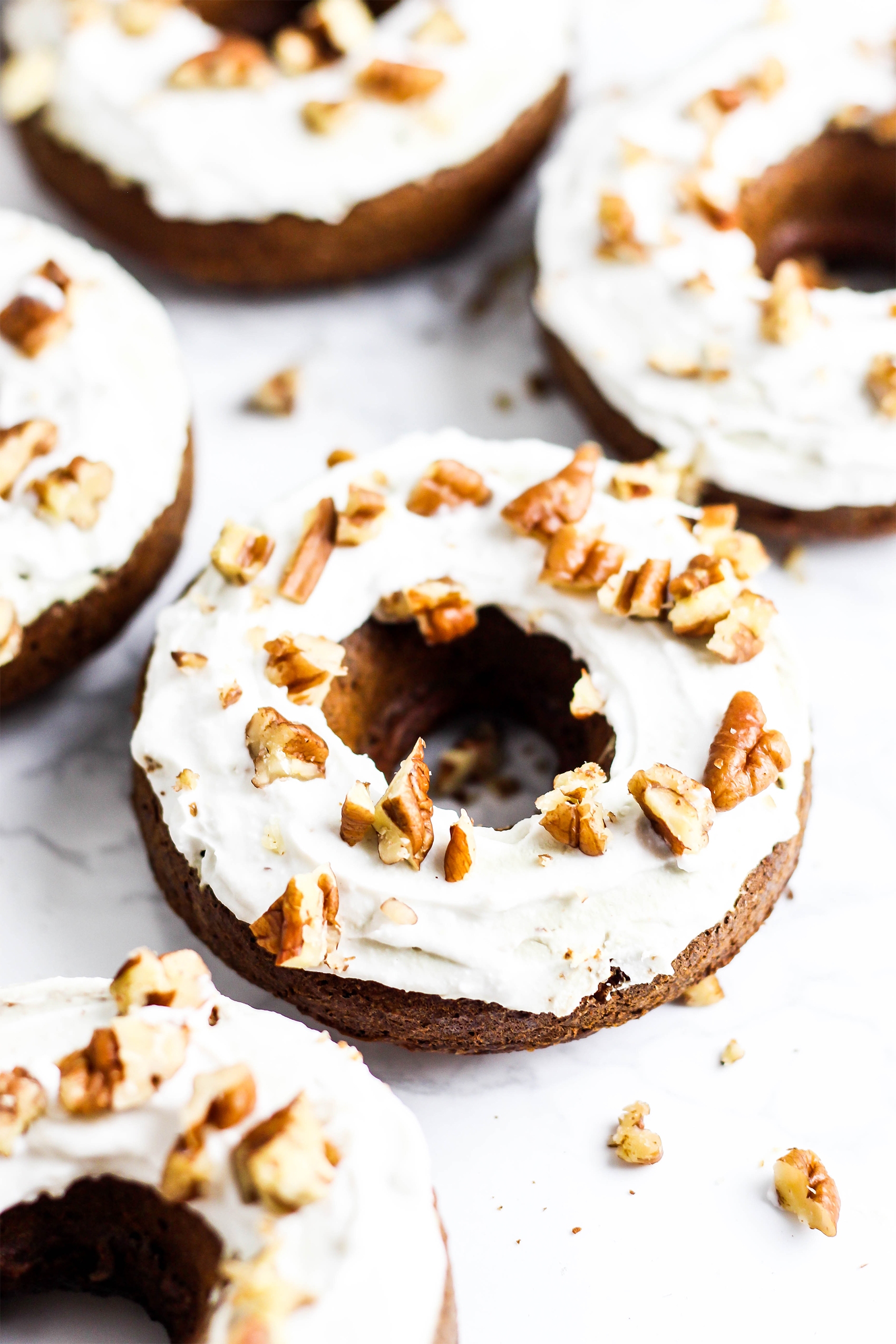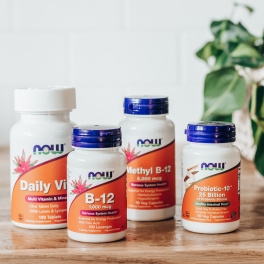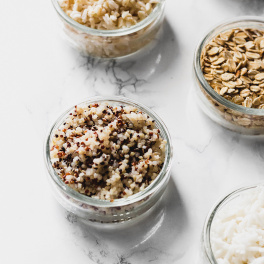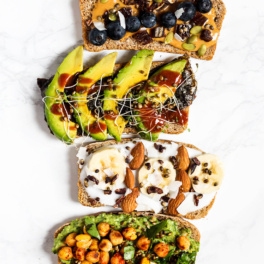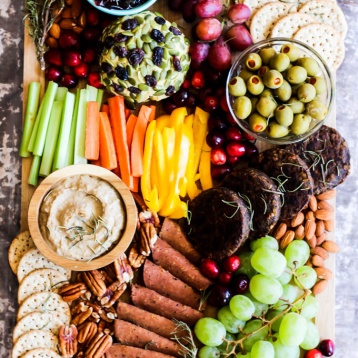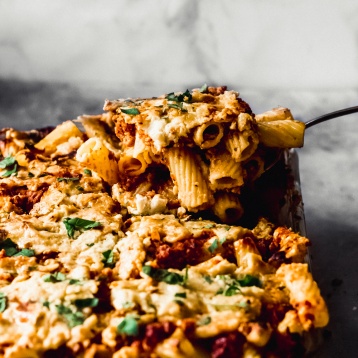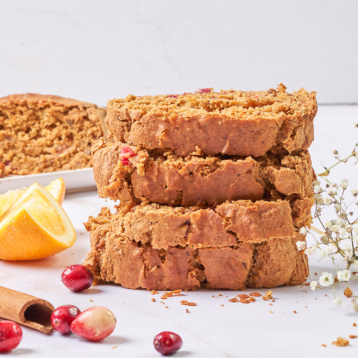Let go of food guilt, ditch the January diet plans, and enjoy the holidays! Here are 4 ways you can find food freedom through intuitive eating.
Intuitive Eating During the Holidays: 4 Tips to Embrace Food Freedom
Let’s face it: the holidays can be a fun, celebratory season of the year, but they can also bring us a lot of stress, anxiety, and food guilt if we have a negative relationship with food and our bodies. Maybe you feel like you can’t allow yourself to fully enjoy all the delicious foods that the holiday season brings. Or you feel like you have to completely binge on everything you see. More often than not, you probably feel like you have to go on some sort of detox or diet when January rolls around.
This is an exhausting cycle that I’m sure many of you have gone through. Restrict “bad” foods, binge on said “bad” foods, feel all the food guilt, and go back to restricting. Rinse and repeat. This cycle is only further exacerbated by the holidays.
I want to tell you that there IS a different way to handle this holiday season. You can fully enjoy the foods of the holiday season, without feeling like you immediately need to go on a diet, by practicing intuitive eating to develop a food freedom mindset versus a diet mentality mindset. The 10 principles of intuitive eating teach us how to do this (psssst: I have a whole Instagram series on what exactly intuitive eating is—go to my Instagram profile and click on the Guides tab).
In this post, I’m sharing 4 tips on how to embrace food freedom and let go of food guilt this holiday season.
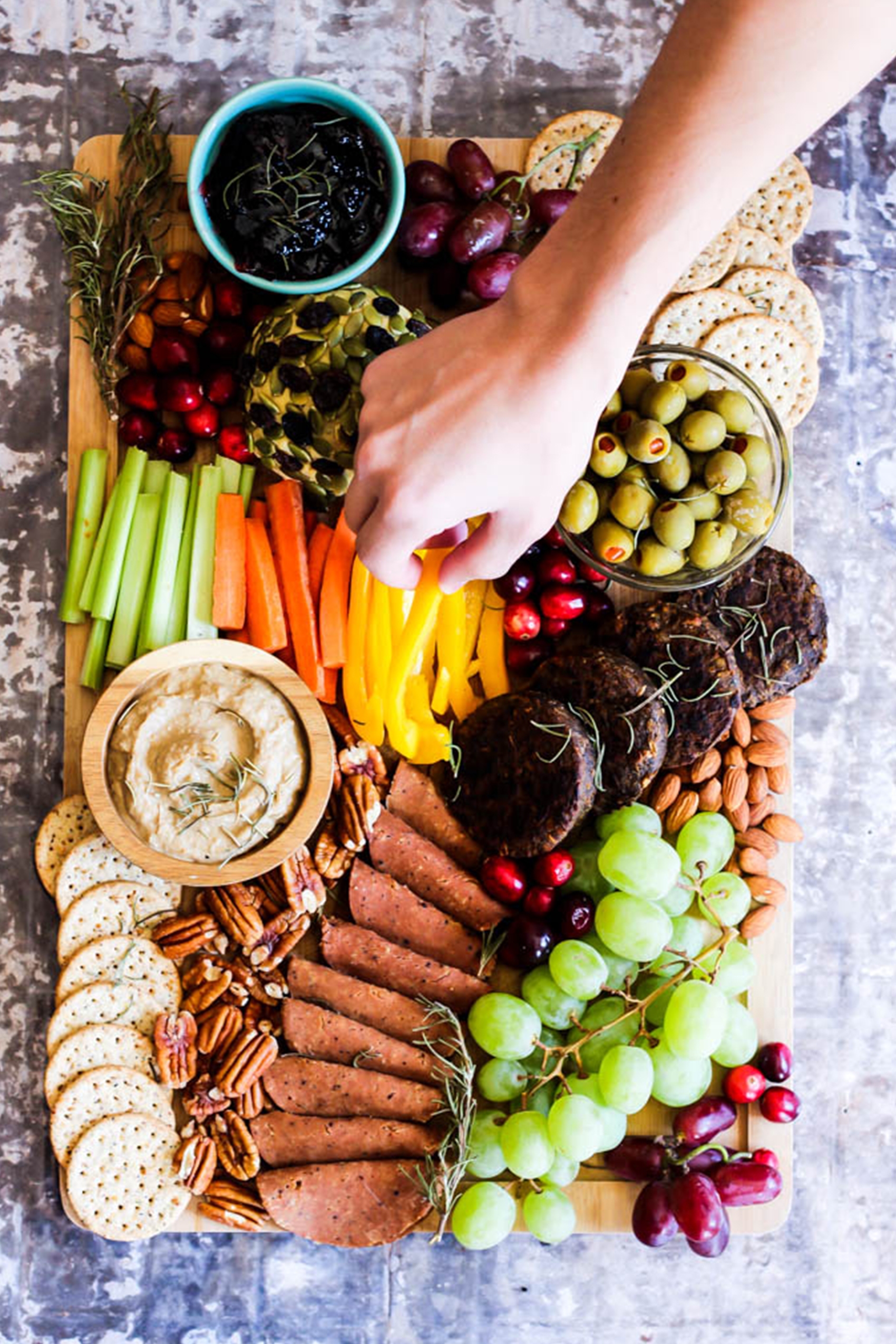
1. Expand your definition of health to include enjoyment.
One of the biggest things I work on with my nutrition clients to find food freedom is bringing more enjoyment to eating. For many of us who have gone on diet after diet, we adopt the “food is fuel” mentality. Therefore, bringing more pleasure, satisfaction, and enjoyment to eating can help us create a healthier relationship with food.
Plus, enjoying our food is actually part of health. Compare these two scenarios. In Scenario A, you’re really stressed about eating a plate of holiday food because it feels “bad” or “against the rules.” Whereas in Scenario B, you feel grateful that you get to enjoy this plate of delicious food with people you love, and you savor each bite. Which one sounds more conducive to health? Scenario B, right? Sometimes we forget that stress can wreak havoc on the body—that includes stress from disordered eating behaviors and being obsessed with diet rules or weight loss.
I encourage you to reflect on if your definition of health includes enjoyment of food and even exercise. Do you think food is only fuel? How can you practice centering foods you actually enjoy eating?
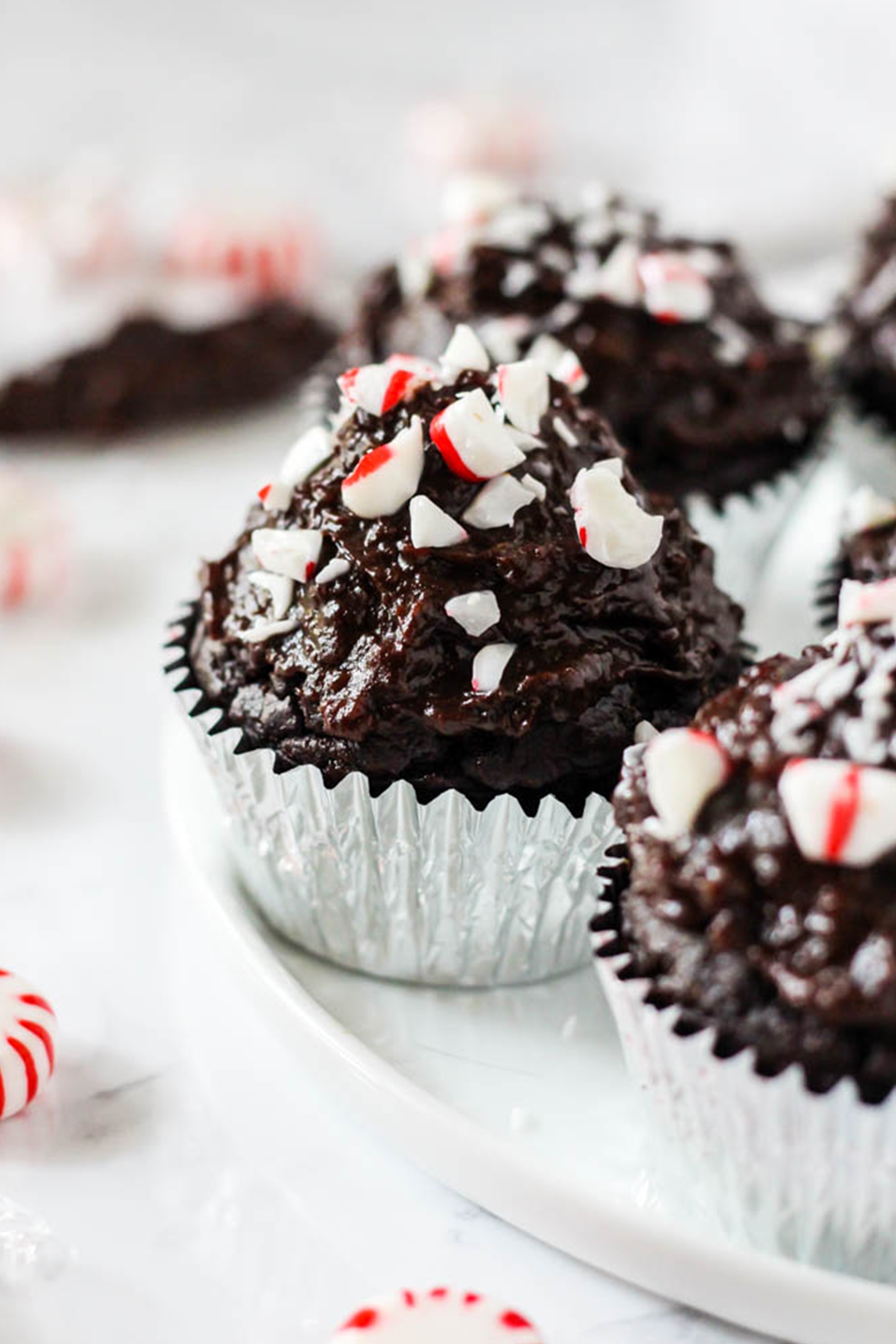
2. Respect your hunger and fullness cues (without getting obsessive).
Although intuitive eating is not the “hunger and fullness diet” (they only make up 2 of the 10 principles), hunger and fullness are definitely important components of intuitive eating! Eating when we’re hungry can help us eat consistently throughout the day, which helps us maintain energy levels. Eating until we’re full and satisfied can help us avoid feeling sick and uncomfortable after meals.
When we get too hungry (running on empty), we tend to eat really fast, which can lead to feeling super stuffed without realizing it. Plus, when we’re at that point of extreme hunger, our bodies want quick energy to protect us from starvation. This usually leads to us reaching for fast energy like candy or cookies, or some other food we’ve deemed bad. This can fuel us thinking, “gosh, I just ate all those Oreos—I better never eat Oreos again because they’re bad.” We put ourselves back in the restrict-binge-guilt cycle, instead of recognizing that our body was just trying to protect us from starvation.
Remember, you won’t always be “perfect” with hunger and fullness—that isn’t even the goal! Sometimes we work too late and get a bit too hungry. Or sometimes the food is just too good to stop eating that we find ourselves a bit uncomfortable. That’s okay!
3. Remind yourself that you deserve to eat no matter what.
No amount of “being good” around food or exercise makes you any more worthy of deserving to eat. This is something I have to remind my clients of over and over again! Because you exist, you deserve to eat. Plain and simple.
Not only that, you deserve to eat (and ENJOY) the foods you like. You have to give yourself total and unconditional permission to eat. Unconditional means NO conditions! “I’ll walk it off later” or “I’ll have pie because I haven’t had sugar in X days” are examples of conditions.
You deserve to eat. No matter what you ate yesterday, what exercise you have or have not done, what your weight is, or what someone else has told you, you deserve to enjoy food.
4. Commit to NOT starting a diet post-holiday season.
Let me introduce you to a phenomenon we like to call “the Last Supper effect.” I’ll use ice cream as the example food here. Let’s say you have a pint of ice cream, and you tell yourself, “I’m going on a diet tomorrow where I can’t eat any ice cream.” What do you think will happen to the ice cream in your hands? More likely than not, you’ll probably eat it all, without thought, regardless of if you’re enjoying it or if you’re feeling satisfied. Placing future restrictions on our food can affect how we approach that food right now.
Many of us are engaging in this (or have in the past) during the holiday season. We say, “I’m having as much as I can now, because in January, I’m cutting out everything.” Let me ask you: does that feel good? Does that mindset lead you to truly enjoying holiday foods? Or does it fuel more shame and guilt, plus feeling very uncomfortable because you’ve eaten all you possibly can?
This cycle stops with us saying NO to January diet commitments. If we want to support our health better in the new year, we can do that without extreme dieting. This can look like:
- Committing to drinking more water (try tea, sparkling water, and flavor enhancers)
- Trying that exercise class that sounds fun
- Incorporating more fiber in your meals and snacks (learn about fiber rich foods)
- Buying new clothes for our present body
- Taking more walks
If you feel drawn to a January diet, think about past years. Did a New Years diet support your health in any way, or did it just make you feel more out of control around food? Was it sustainable? How was my mental health?
I’m accepting 1-on-1 nutrition clients! Click here to learn more about how I can support you in ditching diet culture, letting go of food guilt, and learning how to respect your body.

